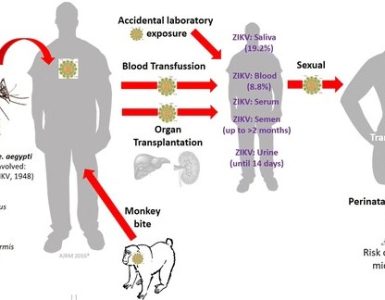
The World Health Organization’s (WHO’s) director-general today called on vaccine makers and countries to take steps to ensure that low- and middle-income countries aren’t shut out of receiving vaccine supply.
The move comes amid news of a European Union deal with Pfizer that would give countries in the region nearly half of the company’s COVID-19 vaccine output for 2021.
Warnings against vaccine nationalism
Tedros Adhanom Gheybreyesus, WHO’s director-general, said the WHO-led COVAX initiative has contracts to secure 2 billion doses and the right of first refusal for 1 billion more.
Currently, 42 countries—only 6 of them middle-income countries—are rolling out vaccines. And though many lower-income countries are ready to receive vaccine, they’re not yet receiving any, because high-income countries have bought up most of it.
“Now we’re also seeing both high- and middle-income countries, that are part of COVAX, making additional bilateral deals,” Tedros said, adding that the actions could boost the price for everyone and meaning that high-risk groups such as health workers and older people in lower-income countries don’t get any vaccine.
Another problem is that some companies and countries haven’t submitted critical data needed for the WHO to issue emergency use listing, a key step for paving the way for vaccine to be deployed in developing countries. So far, the WHO has listed only the Pfizer-BioNTech vaccine for emergency use. Two other companies have also submitted materials for the WHO to consider for listing.
“Vaccine nationalism hurts us all and is self-defeating,” Tedros said, noting that vaccinating equitably also stabilizes health systems and supports a truly global economic recovery.
He pressed manufacturers to prioritize supply and rollout through COVAX and urged countries that have signed contracts for more than they need to donate and release them to COVAX, which is ready to deploy vaccine quickly. “And I urge countries and manufacturers to stop making bilateral deals at the expense of COVAX.”
In other vaccine developments, Brazilian researchers said yesterday that a phase 3 trial of China’s Sinovac vaccine, conducted in Brazil, showed that it was 78% effective, according to Reuters. No severe cases were reported among vaccine recipients. Sinovac’s research partners in Brazil said detailed findings are being submitted to Brazilian regulators for emergency use approval. Brazil and Indonesia are the largest among seven countries known to have contracts with Sinovac.
Also, clerics in Indonesia have deemed the Sinovac vaccine as halal, meaning it is permissible under Islam, according to Reuters. And like the United States, EU regulators have approved a plan to use a sixth dose from vials of Pfizer-BioNTech COVID-19 vaccine.
Another steep case rise, deadliest day in UK
The United Kingdom reported another steep rise in cases: a record 68,053, up from 52,618 reported a day earlier. The nation also reported its deadliest day, with 1,325 new fatalities.
In a weekly surveillance report, Public Health England (PHE) today said cases are rising across all regions, but are highest in London, where the city’s mayordeclared a “major incident” due to the impact on hospitals and urged people to stay at home as much as possible, according to Reuters. The last time the city declared a major incident was in 2017 for the Grenfell Tower fire.
Regarding the spread of the B117 variant, PHE said in an updated technical briefing today that, as of Jan 4, officials have confirmed 6,008 cases, and age and sex patterns are similar to other COVID-19 viruses, with secondary attack rates higher for the variant strain, affecting 11% to 15% of named contacts. At a WHO briefing, Maria Van Kerkhove, PhD, the group’s technical lead for COVID-19, said the viral load is higher for people infected with the variant when compared with those carrying the other circulating virus. Ireland also recorded a record single-day high today, with 8,248 new cases.
On Twitter, Tom Frieden, MD, MPH, former director of the US Centers for Disease Control and Prevention who now leads the global health initiative Resolve to Save Lives, said both countries are seeing exponential increases with variant strains. “I’ve never seen an epidemic curve like this, and the curve is with lockdown. If the variant becomes common [in] the US, it’s close to a worst-case scenario, with a baseline of full hospitals.”
Elsewhere in Europe, Cyprus announced that it will enter its second lockdown on Jan 10, which will be in effect until the end of the month, and Hungary extended its restrictions until Feb 1. Sweden’s parliament agreed to allow the government to take tougher steps against the pandemic, such as ordering a lockdown, according to CNN.
China, Australia order travel restrictions
China sealed off second city in Hebei province, Xingtai, which is home to nearly 8 million people, according to Agence France-Presse. Earlier this week, officials sealed off the provincial capital city of Shijiazhuang, with a population of about 11 million.
Neighboring Beijing has closed off highway access to Shijiazhuang and has closed 155 of its religious sites, according to Reuters.
In Australia, officials in Brisbane ordered an immediate 3-day lockdown after the B117 variant was detected in a cleaner at a quarantine hotel, according to the BBC.
In other global headlines:
- Malaysia stepped up its COVID-19 restrictions after experiencing a surge in cases and its deadliest day, Reuters reported.
- New guidance from UK health officials urges health providers to use two arthritis drugs—tocilizumab or sarilumab—to treat severely sick COVID-19 patients.
- The global COVID-19 total topped 88 million and is now at 88,617,915 with 1,907,996 deaths, according to the Johns Hopkins online dashboard.
Source: CIDRAP

















